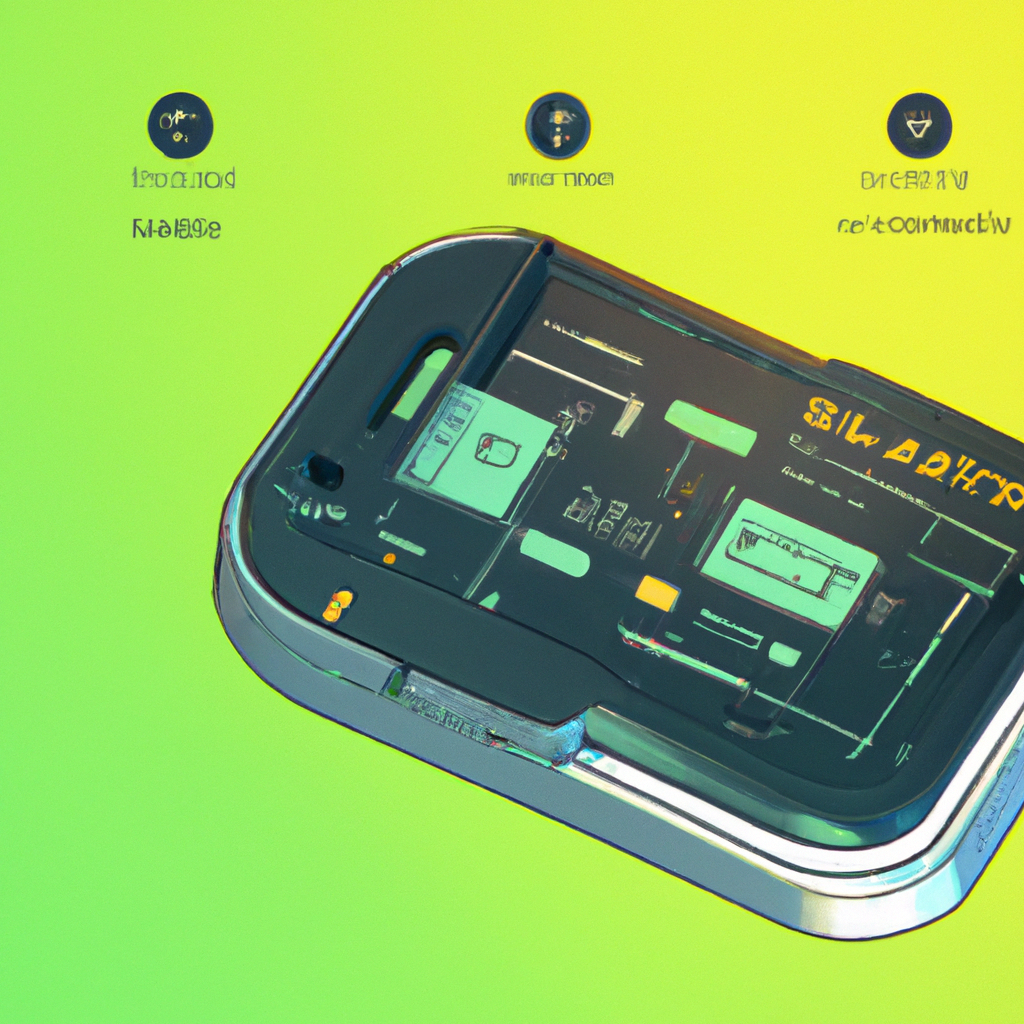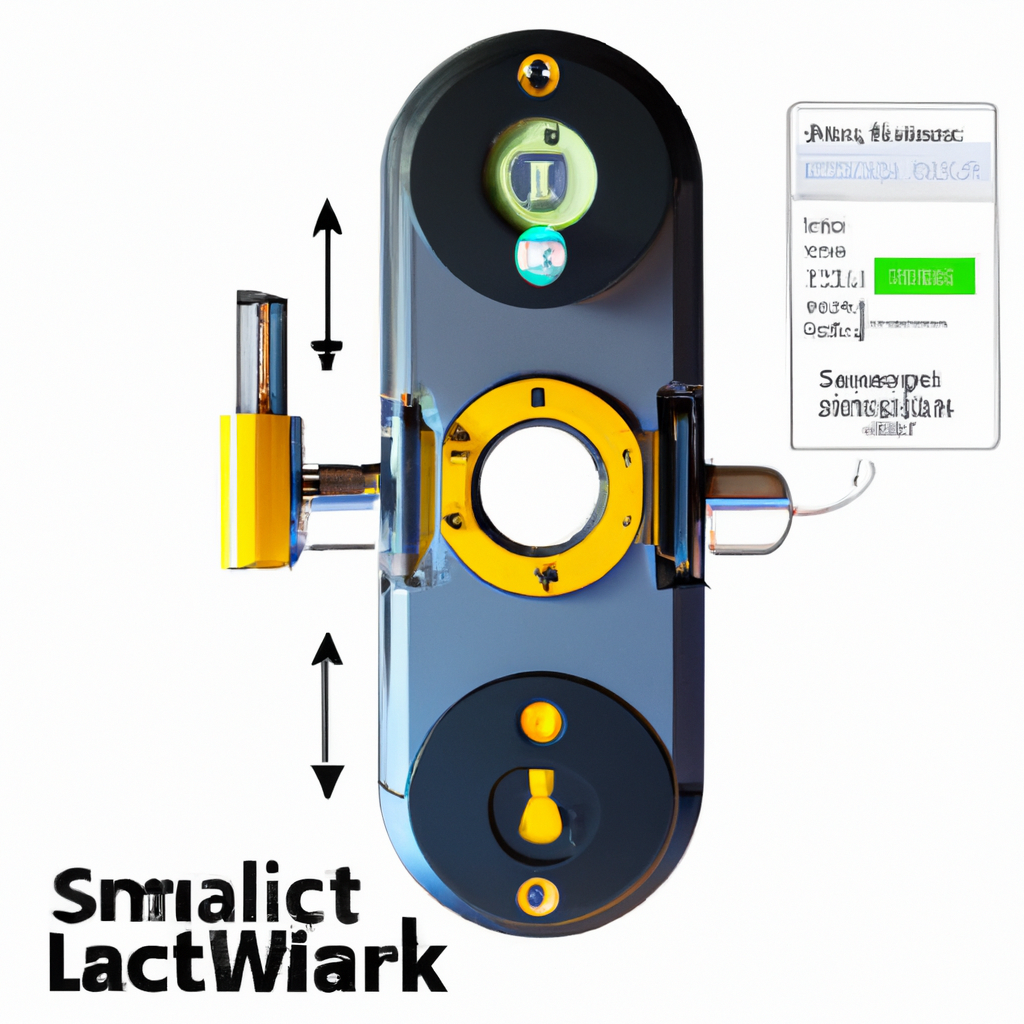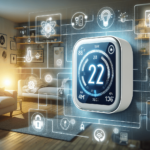Have you ever wondered how smart locks work and whether they provide adequate security for your home? With the increasing popularity of smart home technology, smart locks have become a convenient and popular choice for homeowners. In this article, we will explore the inner workings of smart locks, shedding light on their functionality and addressing the concerns regarding their security. Whether you’re considering upgrading your home security system or simply curious about the technology behind smart locks, this article will provide you with valuable insights.
Smart Locks Basics and Operation
Keyless Entry
Smart locks provide a convenient and keyless way to access your home or office. Gone are the days of fumbling through your pockets or bags in search of keys. With a smart lock, all you need is your phone or a key fob to unlock and lock your doors. Keyless entry not only saves you time but also eliminates the risk of losing or misplacing your keys.
Wireless Communication
Smart locks utilize wireless communication technologies such as Wi-Fi, Bluetooth, or Z-Wave to connect to your home network or other devices. This allows you to control and monitor your smart lock remotely, providing you with added convenience and flexibility. Through wireless communication, you can unlock your doors, grant temporary access to visitors, and receive notifications about the lock’s status, all from your smartphone.
Remote Access
One of the significant advantages of smart locks is the ability to remotely access and control them. With a compatible mobile app, you can lock and unlock your doors from anywhere in the world as long as you have an internet connection. Forgot to lock the door before leaving? No worries. Just open the app and secure your home with a few taps on your smartphone.
Operation Modes
Smart locks offer various operation modes to suit your needs. Some models feature an auto-lock mode, where the lock automatically engages after a set period of time, ensuring your home is always secure. Other locks offer vacation mode, allowing you to disable certain features temporarily while you are away. These operation modes provide you with customizable security settings to match your lifestyle and preferences.
Security Features of Smart Locks
Encryption
Security is a top priority when it comes to smart locks. Most smart lock systems use strong encryption algorithms to protect the communication between the lock and the controlling devices. This ensures that your data, including access codes, remains secure and cannot be intercepted or tampered with by unauthorized individuals.
Authentication
To prevent unauthorized access, smart locks employ authentication mechanisms for users. This can include PIN codes, fingerprint recognition, or facial recognition, depending on the smart lock’s capabilities. By requiring a unique authentication method, smart locks add an extra layer of security and ensure that only authorized individuals can gain access to your property.
Tamper Detection
Smart locks are designed to detect and deter tampering attempts. These locks often have built-in sensors that can detect physical manipulation or forced entry. If tampering is detected, the smart lock can trigger an alert, notify you, or even sound an alarm to deter intruders and protect your property.
Physical Security
In addition to electronic security features, many smart locks are also built with physical security measures in mind. These locks are constructed using materials and designs that make them resistant to physical attacks, such as drilling or picking. Smart locks undergo rigorous testing and certification to ensure their durability and resistance to tampering, providing you with peace of mind.

Potential Vulnerabilities
Weak Passwords
One potential vulnerability of smart locks lies in weak or easily guessable passwords. It is essential to choose a strong and unique password for your smart lock system, just as you would for any online account. Avoid using common passwords or personal information that can be easily associated with you. Instead, opt for a combination of letters, numbers, and symbols to create a robust password.
Software Vulnerabilities
Like any electronic device, smart locks can be susceptible to software vulnerabilities if not properly maintained. Manufacturers regularly release firmware updates to address security flaws and improve the overall performance of their smart lock systems. It is crucial to keep your smart lock’s firmware up to date to ensure that any known vulnerabilities are patched.
Bluetooth Hijacking
Smart locks that rely on Bluetooth for communication may be susceptible to Bluetooth hijacking. Hackers can potentially intercept Bluetooth signals and gain unauthorized access to your smart lock. To mitigate this risk, make sure your smart lock uses the latest Bluetooth encryption standards. Additionally, consider disabling Bluetooth when not in use or implementing additional security measures, such as two-factor authentication.
Physical Attacks
While smart locks offer advanced security features, they are not completely immune to physical attacks. Skilled intruders may attempt to manipulate or force their way past the lock, bypassing the electronic security measures. However, smart locks that are designed with physical security in mind can significantly reduce the risk of successful physical attacks.
Security Measures to Consider
Strong Passwords
One of the simplest yet most effective security measures you can implement is choosing a strong password for your smart lock system. Avoid using easily guessable passwords and consider using a password manager to generate and store complex passwords securely. Regularly update your passwords to mitigate the risk of any leaks or unauthorized access.
Firmware Updates
Stay vigilant with firmware updates for your smart lock system. Manufacturers release periodic updates to address security vulnerabilities and improve the overall functionality of the lock. Make it a habit to check for and install the latest firmware updates to ensure that your smart lock remains secure against evolving threats.
Two-Factor Authentication
Consider enabling two-factor authentication (2FA) for your smart lock system if it supports this feature. 2FA adds an extra layer of security by requiring a second form of authentication, such as a fingerprint scan or a unique code sent to your trusted device. This significantly reduces the risk of unauthorized access even if someone were to obtain your password.
Physical Reinforcements
While smart locks provide electronic security, it is always a good idea to reinforce your physical door security as well. Install solid doors made of durable materials, strong deadbolt locks, and reinforced strike plates. These physical reinforcements enhance the overall security of your property and work in conjunction with the electronic security features of your smart lock.

Smart Locks and Home Network Security
Internet of Things (IoT) Risks
Smart locks, like other IoT devices, can introduce potential risks to your home network security. It is essential to take precautions to protect your network from unauthorized access. Ensure that your home network is secured with a strong password and regularly update your router’s firmware. Consider using a separate network dedicated to IoT devices to isolate them from your primary network.
Securing Wi-Fi Networks
Smart locks usually rely on Wi-Fi networks to connect and communicate. To enhance the security of your smart lock system, secure your Wi-Fi network using the latest encryption standards, such as WPA2 or WPA3. Change the default network name (SSID) and password to prevent unauthorized access. Additionally, disable remote management of your router, as it can potentially be exploited by hackers.
Separate Network for IoT Devices
Creating a separate network for your IoT devices can help isolate potential vulnerabilities. By separating your smart lock, smart home devices, and other IoT devices from your primary network, you reduce the risk of unauthorized access or attacks spreading to your other devices. This added layer of isolation can provide an additional level of security for your smart lock system.
Compatibility and Integration
Smart Home Integration
Smart locks offer compatibility with various smart home platforms, allowing you to integrate them seamlessly into your existing smart home ecosystem. Whether you use Amazon Alexa, Google Assistant, or Apple HomeKit, you can easily control and monitor your smart lock using voice commands or smart home automation routines. Check the compatibility of your smart lock with your desired smart home platform before making a purchase.
Voice Control
Voice control adds a new level of convenience to your smart lock system. With compatible devices like smart speakers or your smartphone, you can simply issue voice commands to lock or unlock your doors. Voice control eliminates the need to physically access your phone or smart home app, making it a convenient option for when your hands are full or when you’re in a rush.
Mobile App Integration
Most smart lock systems come with a dedicated mobile app that allows you to control and monitor your locks remotely. These apps provide you with a user-friendly interface to manage access codes, set operation modes, and receive notifications. Before purchasing a smart lock, consider the features and functionality offered by its mobile app to ensure it meets your specific requirements.
Compatibility with Other Devices
In addition to smart home integration, smart locks can also be compatible with other devices, such as security cameras or doorbell cameras. Integration with these devices allows for enhanced security and convenience. For example, you can receive a live video feed from your doorbell camera when someone approaches your door and use the smart lock to grant or deny access remotely.
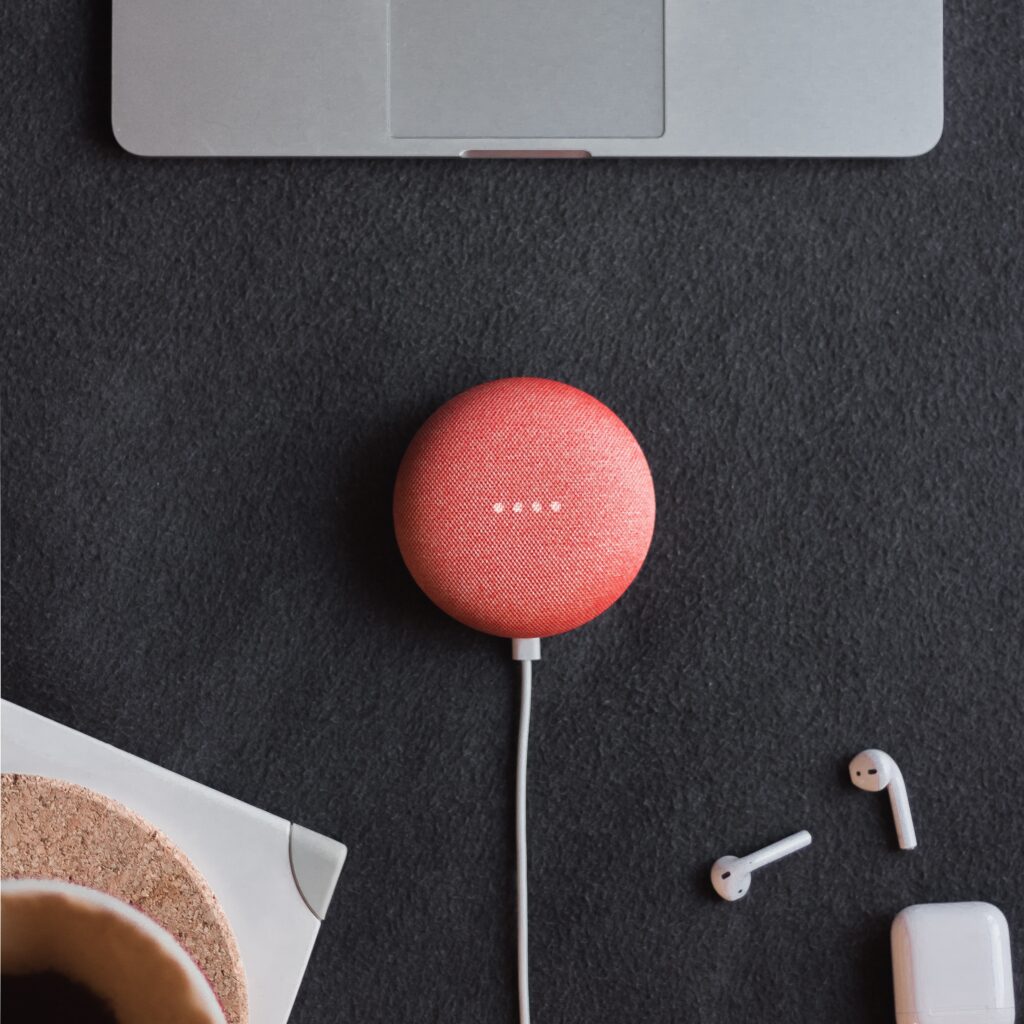
Battery Life and Backup Solutions
Battery Types
Smart locks are powered by batteries, and the type of battery used can impact the overall performance and lifespan of the lock. Common battery types for smart locks include standard AA or AAA batteries, as well as rechargeable batteries. Consider the battery life and ease of replacement when choosing a smart lock to ensure it aligns with your preferences and needs.
Power Consumption
To maximize battery life, smart locks are designed to be energy-efficient. They operate in low-power modes when not in use, only activating when triggered by a user or a specific event, such as a remote command or motion detection. Smart locks with optimized power consumption can last several months or even years on a single set of batteries, providing long-lasting convenience and security.
Backup Power Options
In the event of a power outage or depleted batteries, smart locks often include backup power options. These options can include emergency key access, allowing you to physically unlock the door with a traditional key. Some smart locks also offer the ability to connect an external power source, such as a 9V battery, to power the lock temporarily.
Low Battery Notifications
To ensure that your smart lock never leaves you locked out, most models are equipped with low battery notifications. These notifications can be sent directly to your smartphone via the mobile app or through other communication channels, such as email or SMS. By receiving timely alerts about low battery levels, you can proactively replace the batteries and maintain continuous access to your property.
User Experience and Convenience
Ease of Installation
When it comes to smart locks, ease of installation is a crucial factor to consider. Many smart locks are designed for straightforward installation, with instructions and video tutorials provided by the manufacturers. Some models can easily replace existing deadbolt locks without the need for extensive modifications. However, if you are unsure or uncomfortable with DIY installations, consider professional installation services for peace of mind.
Access Management
Smart locks offer robust access management capabilities, allowing you to grant and revoke access easily. Depending on the model, you can create and manage multiple user codes for family members, friends, or service providers. Advanced systems even allow you to schedule access, enabling temporary codes for specific dates and times. This flexibility ensures that you remain in control of who enters your property at all times.
Usage Tracking
Smart locks equipped with usage tracking features provide valuable insights into who is accessing your property and when. These locks keep a log of all lock activity, including successful and unsuccessful unlock attempts. Usage tracking can be especially useful for monitoring the comings and goings of family members, tracking service provider access, or identifying any suspicious activities.
Integration with Other Devices
Smart locks can integrate with other devices to enhance overall convenience and functionality. For example, integrating your smart lock with a security system or a geolocation-based automation system can automate tasks such as arming your security system when you leave and unlocking your doors when you return home. Look for smart locks that offer seamless integration with your existing smart home devices to create a truly interconnected experience.
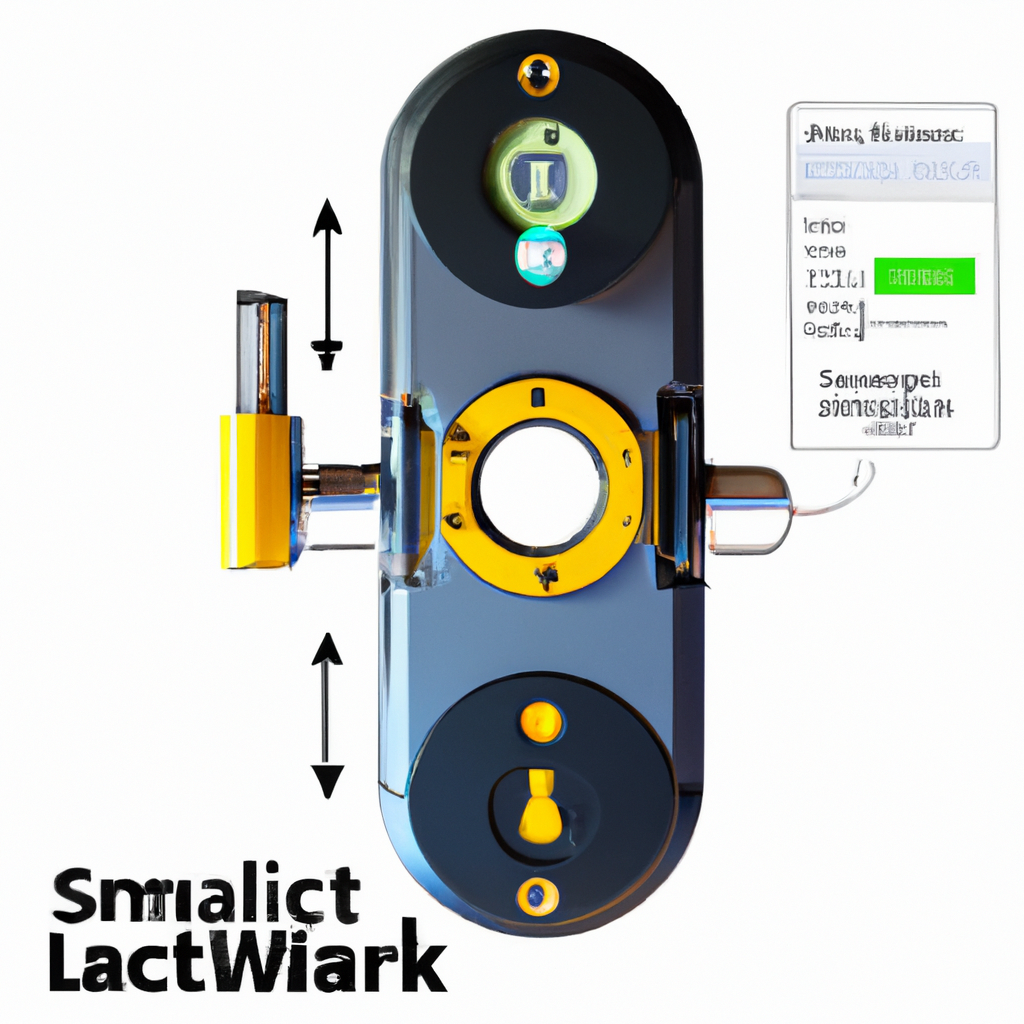
Smart Locks vs. Traditional Locks
Key Management
One of the most significant differences between smart locks and traditional locks lies in key management. With traditional locks, physical keys can be easily lost or duplicated, posing security risks. Smart locks eliminate the need for traditional keys, allowing you to manage access codes digitally. This eliminates the risk of lost or stolen keys and allows for more flexible access control.
Convenience and Efficiency
Smart locks offer unparalleled convenience compared to traditional locks. With a smart lock, you can unlock and lock your doors using your smartphone, key fob, or even voice commands. This eliminates the need to carry a physical key or fumble around with locks in your hands. The ability to remotely control and monitor your smart lock adds an extra layer of efficiency and convenience to your daily routine.
Cost Considerations
When comparing the cost of smart locks to traditional locks, it is essential to consider the long-term benefits and savings. While smart locks may have a higher upfront cost, they eliminate the need for costly rekeying or lock replacement in case of lost keys. Smart locks can also integrate with existing security systems, potentially reducing the need for additional hardware or service fees.
Physical Security Comparison
In terms of physical security, smart locks can be just as secure as traditional locks, if not more so. Many smart locks undergo rigorous testing and certification to meet industry standards for physical security. Additionally, smart locks can offer additional security features, such as tamper detection or activity monitoring, providing an extra layer of protection that traditional locks cannot offer.
Popular Smart Lock Brands and Options
Brand 1
Brand 1 is a well-known and trusted name in the world of smart locks. They offer a range of options, including keyless entry, wireless communication, and advanced security features. Their mobile app provides a user-friendly interface for managing access codes and monitoring lock status. Brand 1 smart locks integrate seamlessly with popular smart home platforms, making them an excellent choice for those looking to create a connected home ecosystem.
Brand 2
Brand 2 specializes in smart locks that prioritize both security and convenience. Their locks feature strong encryption and authentication methods, ensuring reliable protection against intruders. Brand 2 also offers compatibility with voice control systems, allowing users to control their locks with simple voice commands. With a reputation for durability and reliability, Brand 2 smart locks are a popular choice among homeowners and businesses.
Brand 3
Brand 3 focuses on the integration of smart locks with other devices, providing a seamless and interconnected experience. Their locks can be easily integrated with security cameras, doorbell cameras, and automation systems, offering enhanced security and convenience. Brand 3 smart locks also prioritize ease of installation and user-friendly access management, making them an attractive option for those new to smart home technology.
Brand 4
Brand 4 is known for its commitment to physical security and tamper resistance. Their smart locks are built with robust materials and designs that withstand physical attacks. In addition to their physical security features, Brand 4 offers advanced encryption and authentication methods to protect against digital threats. Their locks also excel in battery life, providing long-lasting performance and reduced maintenance.
Overall, there are many reputable brands in the market, each with their own unique features and strengths. Before making a purchase, consider your specific requirements and priorities, such as security, convenience, or integration capabilities, to find the smart lock that best suits your needs.
In conclusion, smart locks offer a keyless and convenient way to secure your home or office. While they come with advanced security features, it’s essential to be aware of potential vulnerabilities and take the necessary security measures. By choosing strong passwords, updating firmware regularly, and considering physical reinforcements, you can ensure the security of your smart lock system. Additionally, integrating your smart lock into your home network and taking advantage of compatibility options can enhance convenience and overall user experience. Smart locks are a reliable and efficient alternative to traditional locks, providing not only security but also enhanced accessibility and control. With various popular brands and options available, you can find a smart lock that meets your specific needs and complements your smart home ecosystem.
